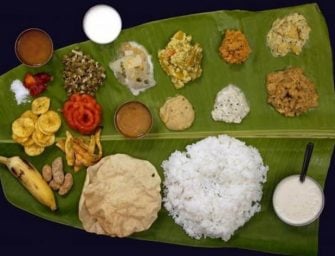The influence of social media on Indian culture is vast and multifaceted, encompassing various aspects of society, lifestyle, and behavior. Over the past decade, social media platforms have become integral parts of daily life for millions of Indians, shaping how they communicate, consume information, express themselves, and interact with others. In this comprehensive analysis, we’ll explore the myriad ways in which social media has impacted Indian culture.
- Cultural Exchange and Globalization: Social media platforms have facilitated unprecedented cultural exchange and globalization in India. Through platforms like Facebook, Instagram, Twitter, and YouTube, Indians can connect with people from diverse backgrounds worldwide, transcending geographical boundaries. This has led to greater exposure to different cultures, traditions, and lifestyles, fostering a sense of global interconnectedness.Indians are now more aware of global trends, events, and issues, thanks to the instantaneous dissemination of information on social media. This exposure has enriched Indian culture by promoting cross-cultural understanding, tolerance, and appreciation for diversity. Additionally, social media has provided a platform for Indians to showcase their own culture and traditions to a global audience, fostering pride and recognition of India’s rich cultural heritage.
- Fashion and Beauty Trends: Social media platforms have transformed India’s fashion and beauty landscape, democratizing access to style inspiration and beauty tips. Influencers, fashion bloggers, and celebrities on platforms like Instagram, TikTok, and YouTube wield significant influence over Indian consumers, shaping fashion trends and beauty standards.Indians now have unprecedented access to a wide range of fashion and beauty content, from makeup tutorials to outfit ideas, all at their fingertips. This has fueled a burgeoning fashion and beauty industry in India, with brands leveraging social media influencers to promote their products and reach a wider audience.

https://www.youtube.com/watch?v=gICkRubcBDk
- Furthermore, social media has empowered individuals to express their unique style and creativity, contributing to the diversification of fashion and beauty norms in Indian society. However, it has also raised concerns about body image issues and unrealistic beauty standards perpetuated by social media influencers.
- Food Culture: Social media has had a profound impact on India’s food culture, revolutionizing how Indians discover, share, and experience food. Platforms like Instagram, Facebook, and YouTube are filled with mouth-watering food content, ranging from recipe videos to restaurant recommendations.Social media influencers, food bloggers, and home chefs have emerged as key influencers in shaping food trends and preferences among Indians. They often share their culinary creations, restaurant reviews, and cooking tips, inspiring others to try new cuisines and dishes.Additionally, social media has fueled the rise of food photography and food blogging in India, with many Indians showcasing their gastronomic adventures online. This has led to the popularization of food tourism and culinary exploration, as Indians seek out unique dining experiences based on social media recommendations.
- Entertainment Industry: Social media has transformed India’s entertainment industry, providing a platform for artists, filmmakers, and musicians to connect with fans, promote their work, and build their personal brands. Platforms like Instagram, Twitter, and YouTube have become essential tools for marketing and promotion in the entertainment sector.Indian celebrities, including actors, singers, and influencers, have amassed millions of followers on social media, enabling them to directly engage with their fan base and cultivate a loyal following. Social media has democratized celebrity culture in India, allowing aspiring artists to gain recognition and success through platforms like TikTok and Instagram Reels.Furthermore, social media has revolutionized content consumption habits in India, with platforms like Netflix, Amazon Prime, and YouTube offering a plethora of entertainment options. Indians now have access to a wide range of content, including movies, TV shows, web series, and short films, on-demand and at their convenience.
- Political Discourse and Activism: Social media has become a powerful tool for political discourse and activism in India, enabling citizens to voice their opinions, mobilize support, and hold authorities accountable. Platforms like Twitter, Facebook, and WhatsApp have played pivotal roles in shaping public opinion and driving political movements.Indian politicians and political parties actively use social media to connect with voters, disseminate information, and rally support during elections and campaigns. Social media has also empowered ordinary citizens to participate in political debates, express dissent, and organize protests on issues ranging from corruption to social justice.However, the spread of misinformation and fake news on social media has emerged as a major challenge in India’s political landscape, leading to polarization and divisiveness among the populace. There have been instances of social media platforms being used to propagate hate speech, incite violence, and spread communal tensions, highlighting the need for greater regulation and accountability.
- Education and Learning: Social media has revolutionized education and learning in India, providing access to a wealth of educational resources, online courses, and learning communities. Platforms like YouTube, Khan Academy, and Coursera offer free and accessible educational content on a wide range of subjects, from academic courses to skill development tutorials.Social media has also transformed the way students collaborate, communicate, and share knowledge. Online forums, discussion groups, and study communities on platforms like Reddit and WhatsApp enable students to connect with peers, seek help, and exchange ideas, regardless of geographical barriers.Additionally, social media has become a valuable tool for educators and institutions to engage with students, supplement traditional teaching methods, and promote lifelong learning. Many educational institutions in India now use social media platforms to disseminate information, announce updates, and interact with stakeholders.
- Business and Entrepreneurship: Social media has catalyzed the growth of entrepreneurship and small businesses in India, providing a platform for aspiring entrepreneurs to showcase their products, reach customers, and build brand awareness. Platforms like Instagram, Facebook, and WhatsApp have democratized marketing and advertising, enabling businesses of all sizes to compete in the digital marketplace.Social media influencers and micro-influencers have emerged as key players in promoting products and driving sales in India. Influencer marketing has become a popular strategy for brands to reach their target audience and generate buzz around their products or services.Furthermore, social commerce has gained traction in India, with platforms like Instagram Shopping and Facebook Marketplace enabling businesses to sell directly to consumers through social media. This has transformed the way Indians shop and discover products, blurring the lines between social networking and e-commerce.
- Health and Wellness: Social media has had a significant impact on health and wellness trends in India, shaping how individuals approach fitness, nutrition, and mental well-being. Platforms like Instagram, YouTube, and TikTok are filled with fitness influencers, wellness coaches, and nutrition experts sharing tips, workouts, and healthy recipes.Indians are increasingly turning to social media for health-related information, seeking advice on diet, exercise, stress management, and mental health. Social media has provided a platform for individuals to share their health journeys, seek support from online communities, and access resources for self-improvement.However, the spread of misinformation and unrealistic health standards on social media has raised concerns about the potential negative impact on body image, self-esteem, and mental health. There is a need for greater awareness and critical thinking when consuming health-related content on social media.
In conclusion, social media has profoundly influenced Indian culture in myriad ways, reshaping societal norms, consumer behavior, and communication patterns. While social media has brought about positive changes, such as greater connectivity, cultural exchange, and entrepreneurial opportunities, it has also posed challenges, including misinformation, privacy concerns, and digital addiction. As India continues to embrace the digital age.



